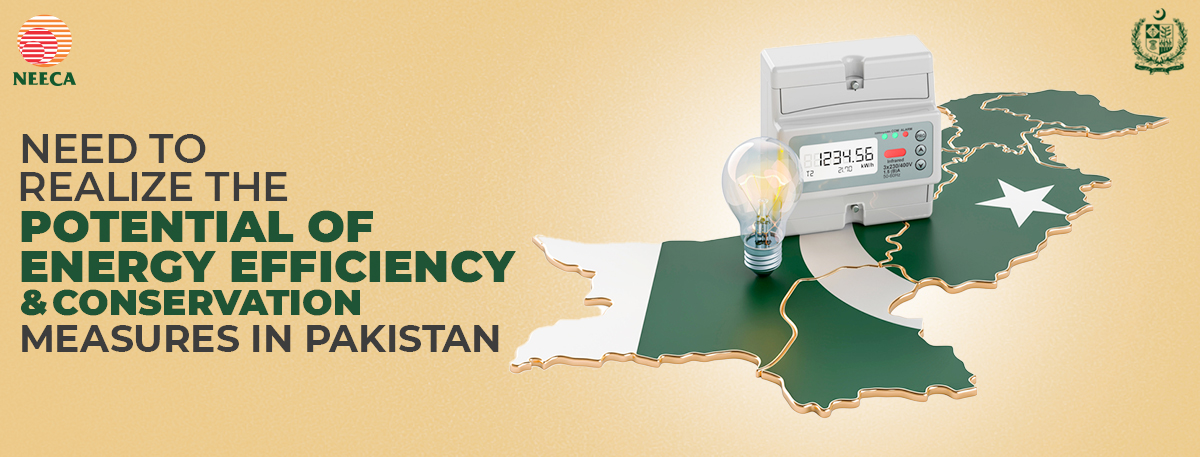Persuading the people to be more cautious in the use of energy has long been seen as the most effective and simple approach to tackle climate change. However, “persuading people” remains the problem in this approach.
If we are to look at the global policies and programs implemented to encourage energy conservation amongst people, we see a heavy reliance on technological interventions, as well as, economics; consumers save money by saving energy. However, researches have shown that the consumers’ behavior in energy-consumption isn’t always rational and that gentle consistent pushed towards energy efficiency may prove useful.
If we are to look specifically in the context of Pakistan, there is little initiative (if any) that have been taken to persuade consumers for energy conservation. The country has long faced chronic energy shortages, yet in the past, there have been little to no programs that have been initiated to encourage/persuade consumers in adopting efficient energy utilization patterns. With the absence of any technical interventions in the past, the general energy consumption pattern for the domestic households in Pakistan is primarily influenced by economics. Consumers in the lower economic segment tend to be cautious of energy consumption due to the high energy prices, whereas, consumers in the upper economic segment don’t pay much heed towards energy efficiency.
According to the United Nation Intergovernmental Panel on Climate Change, simple lifestyle and behavior changes in energy consumption like setting thermostats higher in summers and lower in winters are greatly effective in reducing energy consumption, while contributing towards mitigating Greenhouse Gases (GHG) emissions. To further add weight to the effectiveness of behavior and lifestyle changes for energy conservation; Richard Thaler, Novel Laureate for Economics noted the effectiveness of nudges in shaping public policy. Richard reported that by raising awareness about the efficient use of energy, public opinion can be molded towards efficient energy consumption.
In general, the households display three distinctive types of behavior towards energy conservation;
- Curtailment; this is the most common behavior displayed by energy consumers where the stress is on saving energy by switching off any unattended appliances, lights, or fans
- Maintenance; This type of behavior entails taking an active interest in ensuring running conditions of appliances and equipment to ensure energy efficiency
- Buying Efficiently; investing in energy-efficient appliances/products
In the context of Pakistan, most of the energy consumers in the country display commitment towards “curtailment behavior”. However, with little initiatives to raise awareness about “Maintenance” and “Buying Efficiently”, the savings from “curtailment” mostly goes in vain.
Focusing on Behavior
Keeping in view the important role of consumer behavior in energy efficiency, energy providers in the United States and Europe have implemented various behavior focused initiatives for the residential sector. These initiatives are found to be as effective (even better) than the initiatives in technology-oriented Demand Side Management (DSM). By understanding the consumer behavior towards energy consumption, planning agencies and utility companies can come up with effective policies customized to the consumer needs, as well as, offer them incentives to implement energy-efficient technologies and practices. For Pakistan to have any notable success in energy efficiency goals, it’s important to invest simultaneously in technological interventions, as well as, behavior change programs for users.
Behavior-Based Energy Efficiency Programs
Behavior-based energy efficiency initiatives can be broadly classified into two categories;
- Education and outreach
The education and outreach initiative should focus on reaching out to the consumers about the potential benefits of energy-saving (economics and health), as well as, deliver consumers the times to save energy
- Feedback programs
The feedback programs should use smart meters to nudge consumers about their energy consumption patterns in form of energy reports or comparisons with similar households.
In Pakistan, smart metering is only recently being launched in big cities like Karachi, Islamabad, and Lahore. However, no initiatives still have been launched by the power sector to give feedback to consumers about their energy consumption patterns. As for awareness, TV commercial campaigns have been launched by public and private energy companies to promote efficient energy consumption amongst users. However, no concrete steps on the ground have thus far been taken to educate and guide consumers about the efficient use of energy.
The key to achieving notable energy efficiency lies with energy utility companies taking ground with the right technology measures like energy reports from smart meters to inform and influence users about their energy consumption patterns. Utility companies also need to open multiple channels of communication with consumers to discuss the benefits of energy conservation from the economic point of view, as well as, for mitigating the GHG emissions.
Rebound Effect?
One persistent critic of energy efficiency programs in the developed world is the rebound effect. The proponent of this theory claims that consumers after adopting energy-efficient technology use excessive energy, thereby offsetting any potential gain from the investment; making it a bad investment. However, in the context of Pakistan where the country still faces hours-long power outages and millions lack access to electricity, this effect has little applicability. Thereby, it’s important to assess the impact of energy efficiency intervention in the larger context; taking into consideration the societal, environmental, and economic benefits such programs have to offer to the consumers.
Takeaway:
By reviewing the present state of affairs for energy consumption in the country, it can be said that consumer behavior for energy efficiency solutions is complex with great ambiguity and diversity in attitude, and preferences. Traditionally, energy providers have focused on cost and risk priorities. However, this approach won’t likely support the country’s renewed commitment and advancement towards energy efficiency goals. It is thereby on part of the energy providers to create new consumer-centric programs and competencies revolving about conservation initiatives to attract and gain more market. There are various key imperatives for energy providers to consider for motivating and driving consumers towards efficient use of energy and commit towards energy conservation programs, in line with the Sustainable Development Goals (SDGs).

